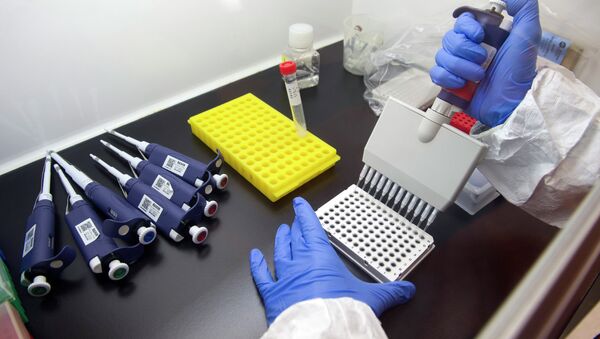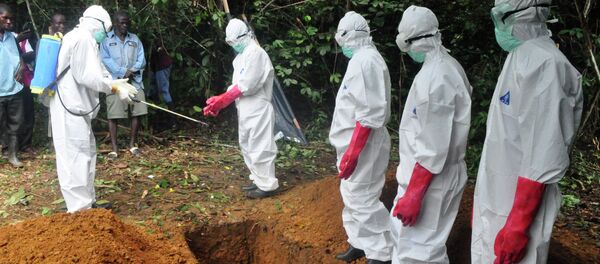WASHINGTON (Sputnik) — Early clinical trials of an experimental Ebola vaccine showed positive results in creating anti-body responses in human test subjects, the US National Institutes of Health (NIH) announced in a statement.
“An early-stage clinical trial of an experimental Ebola vaccine conducted at the National Institutes of Health and the Walter Reed Army Institute of Research (WRAIR) found that the vaccine, called VSV-ZEBOV, was safe and elicited robust antibody responses in all 40 of the healthy adults who received it,” NIH said on Wednesday.
The vaccine created minor side effects during testing, including pain at the point of injection and fevers that lasted between 12 and 36 hours.
"The prompt, dose-dependent production of high levels of antibodies following a single injection and the overall favorable safety profile of this vaccine make VSV-ZEBOV a promising candidate that might be particularly useful in outbreak interventions,” US National Institute of Allergy and Infectious Diseases investigator Richard Davey, who worked on the project, said.
The results of the VSV-ZEBOV vaccine study were published in The New England Journal of Medicine. The VSV-ZEBOV vaccine is one of two experimental Ebola vaccines being tested in volunteer clinical trials in Liberia.
The current Ebola endemic began in southern Guinea and later spread to Liberia, Sierra Leone, Nigeria and Senegal, infecting about 25,000 people since the outbreak started in 2014, according to the World Health Organization. More than 10,000 people have been killed by the virus.



